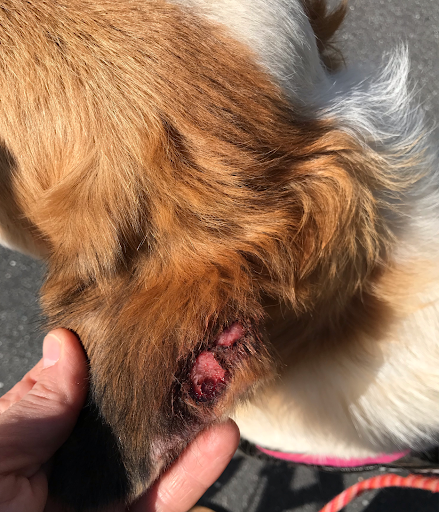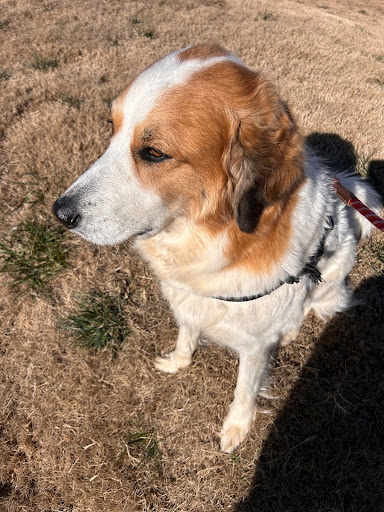


One of the things that drives me crazy as a veterinarian is hearing common falsehoods such as “allergies can’t be cured, but they can be managed”.
How often have you heard the line “Fluffy can’t be cured, but we can manage with such and such medication and do our best to avoid the allergens”?
Is it possible that this isn’t true? Is there a type of therapy that addresses the underlying susceptibility of the patient allowing the body to genuinely heal, and no longer be sensitive to previous allergens?
The answer to that question is emphatically yes, and I would like to illustrate that reality with my own dog, Posey and her previous chicken allergy.
Posey is now four years old and is in great overall health, but she wasn’t always in such good condition. At just a few months of age she began itching frequently and this only intensified with time. Multiple areas on her skin became inflamed and worst of all were her ears. Her outer ear flaps (pinnae) became extremely red and ulcerated, and the hair began to fall out.
Believing that homeopathic treatment was the best way for her to be truly healed, and having seen countless cases that have suffered negative side effects of suppressive treatment, I resisted any temptation to stop the itch with steroids or other suppressive medicines. I was determined to find the homeopathic remedy which would best address her symptom picture on the whole, while also experimenting with foods to identify any possible food triggers in the meantime.
We completely changed her diet which helped to some degree, however her symptoms didn’t fully resolve. On one occasion I added some chicken into this new diet and she rapidly developed the worst skin and ear lesions that she ever experienced. Within hours her ears became intensely inflamed and itchy. Although this flare was unpleasant, it was at the same time helpful in that it provided clear evidence that chicken was a definite allergy trigger.
To find the best remedy for Posey, all of her symptoms were evaluated in their totality including things like personality, temperature preferences, level of restlessness, etc. Once finding this remedy her response was amazing. The itch progressively diminished and the lesions began to resolve. Her ears, which were the worst area affected, were the last to completely resolve but eventually all the lesions disappeared and her hair grew back lush and beautiful.
After Posey had been doing beautifully on all accounts for several months, I decided to re-introduce chicken to her diet to see what would happen. To our great satisfaction, as well as hers, she handled the chicken well. She now eats chicken on a regular basis and has had no return of the skin lesions or post-eating itch.
With accurate homeopathic prescribing, not only do the most bothersome symptoms resolve, but the patient improves on the whole. For Posey, she became less restless, emotionally calmer, and her body condition improved, having been formerly a little on the thin side despite plenty of good food.
There is much that can be said about the art and science of homeopathy, but I simply wanted to illustrate here the potential of homeopathy to allow deep level cure in our pets, including those dealing with issues such as allergies and autoimmune disease. In the case of allergies the ultimate problem isn’t the allergen, it’s the individual’s abnormal response to it. Homeopathy allows the patient to heal on a very deep level, addressing even the underlying susceptibility to disease, all the while with remedies that are completely non-toxic.
Successful homeopathic medicine requires the ultimate in individualization, and the remedy needed to address imbalance in patients is the one that matches their overall symptom picture the best. Some patients will need a series of remedies over time as their symptom picture changes. The highest success in homeopathy will come when we are able to individualize and find what is most peculiar about each case. This takes lots of patience and diligent observation, but the rewards for all of the efforts are more than can be measured.